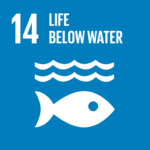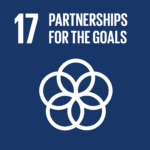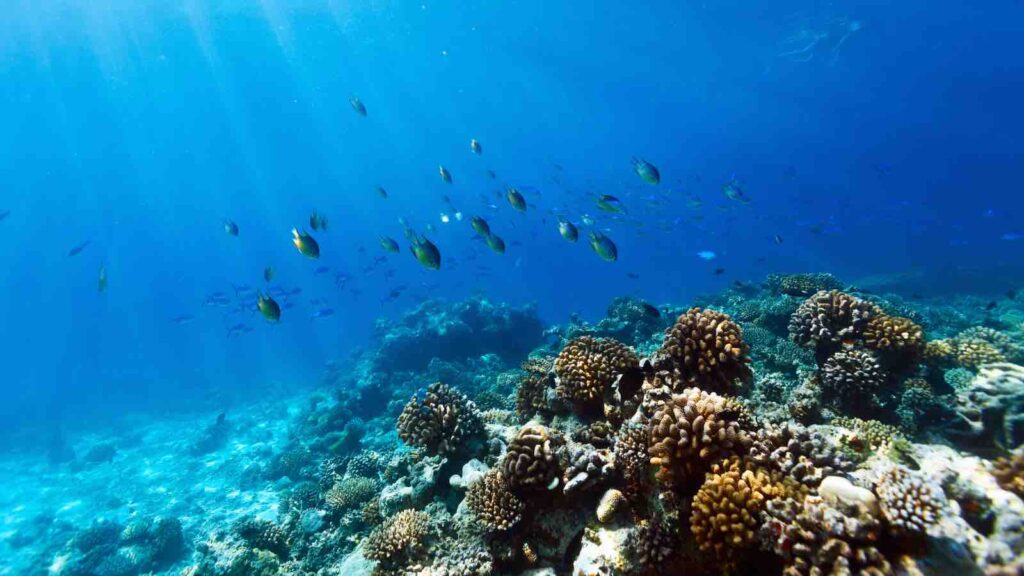Coral Triangle Nations unite to combat marine crisis, set bold 2025 conservation goals
DILI, TIMOR-LESTE – In a significant move to address mounting threats to one of the world’s richest marine ecosystems, six Coral Triangle nations—Indonesia, Malaysia, Papua New Guinea, the Solomon Islands, the Philippines, and Timor-Leste—have united to establish conservation targets for 2025. The 19th Senior Officials Meeting of the Coral Triangle Initiative on Coral Reefs, Fisheries, and Food Security (CTI-CFF), held this week in Dili, Timor-Leste, underscored the urgency of safeguarding the region’s biodiversity and its vital role in global food security.
RELEVANT SUSTAINABLE GOALS



The Coral Triangle: A Global Marine Treasure at Risk
Spanning 6 million square kilometers across Southeast Asia and the Pacific, the Coral Triangle is a biodiversity hotspot that boasts 76% of the world’s coral species and 37% of all reef fish species. It sustains over 130 million coastal residents and supplies more than 20% of the world’s seafood. However, this ecological marvel faces relentless pressures, including overfishing, habitat destruction, illegal fishing, and climate-induced coral bleaching.
Director General of Fisheries, Aquaculture, and Aquatic Resources of Timor-Leste, Celestino da Cunha Barreto, emphasized the global significance of this marine region. “Our oceans sustain millions of livelihoods. This is a shared global responsibility,” he stated, calling for international collaboration to protect this critical resource.
2025 Conservation Priorities: A Bold Agenda
The meeting’s key outcomes include ambitious targets designed to mitigate the impact of human activities and environmental challenges on the Coral Triangle. Among the primary goals are:
- Enhanced Collaboration Across Key Marine Areas: Countries committed to increased cooperation in managing the Sulu-Sulawesi, Bismarck-Solomon, and Lesser Sunda seascapes, with a focus on conserving migratory species and advancing research.
- Improving Marine Protected Areas (MPAs): Efforts will expand to boost the effectiveness of MPAs, strengthen management networks, and align with Sustainable Development Goal (SDG) 14: Life Below Water.
- Support for the Global 30×30 Target: Coral Triangle nations reiterated their leadership in the global goal of protecting 30% of the world’s oceans by 2030, reflecting both regional responsibility and global necessity.
“Commitment to 30×30 not only demonstrates regional leadership but also underscores a global imperative,” said Frank Keith Griffin, Executive Director of the CTI-CFF Regional Secretariat. “The Coral Triangle is a treasure for all humanity, demanding bold and collaborative action.”
The stakes for the Coral Triangle could not be higher. As the region battles overfishing, climate change, and pollution, its health is critical to the survival of millions and the stability of the global food supply. The CTI-CFF’s conservation agenda for 2025 is an acknowledgment of the urgent need for coordinated action at both regional and global levels.
“This region is the beating heart of marine biodiversity and a cornerstone of global food security,”
said H.E. Celestino da Cunha Barreto, Chair of the Committee of Senior Officials, Timor-Leste’s Director General of Aquaculture, Fisheries, and Aquatic Resources. “Our oceans sustain millions of livelihoods, but this is a shared global responsibility. We call on the international community to join us in protecting these vital resources.”
said H.E. Celestino da Cunha Barreto, Chair of the Committee of Senior Officials, Timor-Leste’s Director General of Aquaculture, Fisheries, and Aquatic Resources. “Our oceans sustain millions of livelihoods, but this is a shared global responsibility. We call on the international community to join us in protecting these vital resources.”
With their 2025 targets and strengthened partnerships, the Coral Triangle nations are charting a course for sustainable marine stewardship—one that could serve as a model for preserving the world’s fragile ecosystems in the face of escalating environmental challenges.
About Coral Triangle and CTI-CFF:
The Coral Triangle is the world’s center of marine life, encompassing around 6 million sq km of ocean across six countries in Asia-Pacific – Indonesia, Malaysia, Papua New Guinea, Philippines, Solomon Islands, and Timor-Leste. It is home to 76% of the world’s known coral species, 37% of the world’s coral reef fish species, and commercially valuable species such as tuna, whales, dolphins, rays, sharks, including 6 of the world’s 7 known species of marine turtles.
The CTI-CFF is a multilateral partnership established in 2009 of six countries working together to sustain biodiversity conservation and food security through the sustainable management of marine resources taking into consideration climate change impacts. The six CTI-CFF Member Countries (Indonesia, Malaysia, Papua New Guinea, Philippines, Timor-Leste and Solomon Islands) focus on the conservation of coral reefs and their associated ecosystems within the Coral Triangle region.
You may also be interested in :
The 30×30 Southeast Asia Ocean Fund: A New Hope For Marine Conservation Announced At COP16



